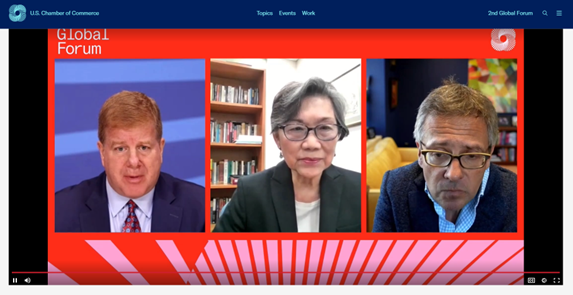On May 10th and May 11th, KIELTYKA GLADKOWSKI KG LEGAL participates in the US Chamber of Commerce second annual virtual Global Forum.
This year’s theme is “Competition in the Global Marketplace.” The speakers will discuss substantial shifts in the global landscape and explore how the competition for global markets has shifted and how today’s decisions can impact the ability to achieve sustainable, durable, and inclusive growth, creating jobs and prosperity.
More
May 7, 2022 marked the introduction of the amendment to the Polish Act on Counteracting Drug Addiction. The amendments to the Polish regulations make it possible to cultivate non-fiber hemp, carried out in research institutes, in order to obtain the raw material intended for the preparation of drugs. The act also transfers the obligation to monitor the cultivation of poppy and fibrous hemp from local government authorities to the National Center for Agricultural Support.
The cultivation of hemp and poppy seeds in Poland is a controlled sector. The current legal status contains regulations according to which the producer and the buyer of poppy or hemp annually submitted an application, together with all the documentation, to the relevant authorities (mayors, city presidents) or voivodeship marshals for a decision authorizing the cultivation or purchase of poppy or fiber hemp. The new solutions abolish these requirements. To be able to grow hemp or poppy, one will only need to submit an application to the National Center for Agricultural Support. Additionally, on the basis of the current regulations, the voivodship parliament is responsible for determining the area of poppy and hemp. This solution had a limiting effect on the cultivation area and the development opportunities of the national bioeconomy. The new regulations abolish this obligation. In addition, the catalog of destination and purposes for which poppy or industrial hemp can be used is to be expanded.
More
On October 13, 2022, there will enter into force changes to the Polish Commercial Companies Code, which will have influence on corporations operating in Poland, particularly from the perspective of holding law, regulations increasing the powers of supervisory boards and imposing additional obligations on the management boards of capital companies. The changes are introduced by the latest amendment to the Polish Code of Commercial Companies and Partnerships of February 9, 2022, published on April 12 in the Journal of Laws (Journal of Laws, item 807).
The changes contained in the amendment are important both for the owners of entities (shareholders), as well as for members of supervisory boards and members of management boards.
More
On 5 May 2022 KIELTYKA GLADKOWSKI KG LEGAL participated in the meeting organized by Life Science Cluster on material engineering.
The main speakers were the representatives of the Institute of Metallurgy and Materials Science of the Polish Academy of Sciences in Krakow.
The Institute of Metallurgy and Materials Science deals with issues from the border of materials engineering, molecular biology and regenerative medicine. Within the Institute there operates a Research Laboratories Group and the Institute is authorized to confer doctoral and postdoctoral degrees in the field of metallurgy and materials engineering. The Institute cooperates at the international level, including with France, Austria, Russia, Hungary, Ukraine, Slovakia, the Netherlands, Spain, Canada.
More
Drones – how dangerous can they be?
The dangers of drones are no longer just a question of military use. The ease of acquiring and controlling drones as well as the possibility to test invented tasks in advance means that small flying devices are already used not only by the military. Currently, they are becoming more and more popular in various criminal groups.
Scenarios of terrorist attacks using civilian drones are not only analyzed by the services of individual countries, but also physically tested. Also, many institutions in the USA responsible for national security pay attention to new threats related to the use of drones.
More





